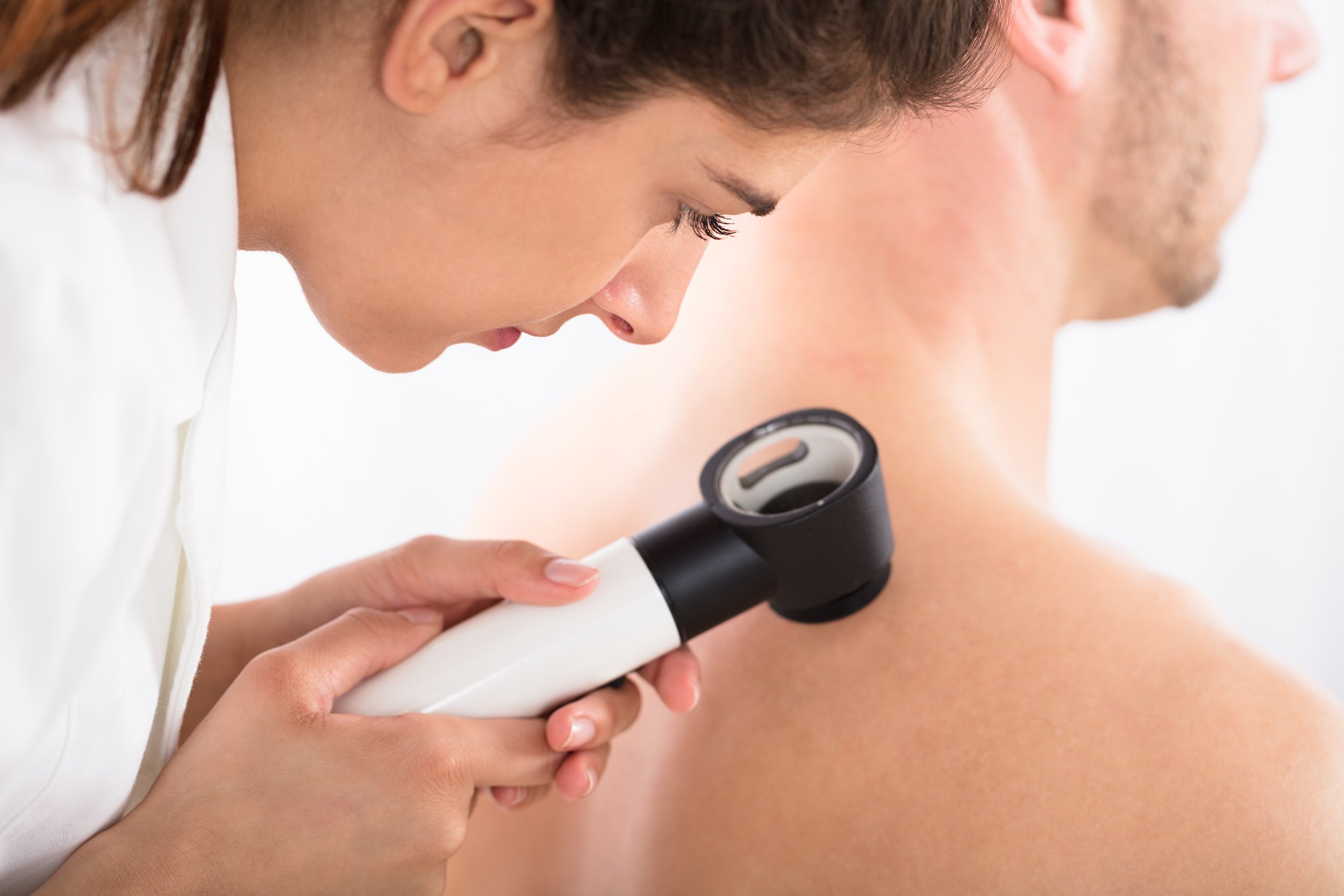
medical services
Dr. Yalowitz sees patients of all ages for a wide variety of skin conditions and is known for being an astute diagnostician with vast knowledge and experience in all types of skin disorders and complaints, as well as the corresponding therapeutic options.
SKIN CANCER
There are three common types of skin cancers: basal cell carcinoma, squamous cell carcinoma and melanoma. Early detection is important in the treatment of skin cancer. Family history plays a role in the development of skin cancer, as does a history of extensive sun exposure. Annual skin checks are essential in detecting cancerous and pre-cancerous skin lesions. Melanoma can be life-threatening and an atypical mole (dysplastic nevus) should never be ignored. If you have a mole that is growing, changing in any way or bleeding, see a board certified dermatologist for evaluation.
Read more.
MOLES AND OTHER BENIGN LESIONS
Moles, or nevi, are pigmented lesions ranging in color from tan to brown that can be flat or raised and can appear anywhere on the body. Moles are very common and most people have many. However, if they grow, change, become irregular or bleed, all of which could be a sign of Melanoma, you should be promptly checked by a board-certified dermatologist. Other benign lesions include skin tags, seborrheic keratoses and warts. These types of lesions are often and easily removed for cosmetic purposes.
ACNE
Acne, also known as acne vulgaris, is a common condition that can cause blackheads and whiteheads (comedones), pimples, nodules and cysts. There are many factors contributing to this process with the sebaceous gland at the core. Genetics, hormones and topical exposures may play a role. Treatment options include both oral and topical prescription medications as well as a good skin care regimen. It is important to see a skilled board-certified dermatologist to address this complex, and yet all too common, condition
ECZEMA
Eczema is a general term. There are many types of eczema, including genetic (atopic) and allergic (contact). Although these rashes can be chronic and recurring, they are noncontagious and vary widely in symptoms and severity. The patient usually experiences inflamed, red, dry, itchy skin. Eczema is generally treated with oral and topical prescription medications, although injectable medicines are sometimes used.
ROSACEA
Rosacea is a chronic skin condition, usually affecting the face, which gives the skin a reddened or flushed appearance. This condition can also involve swelling, pimples and pustules, and small dilated blood vessels. Prescription medications, both oral and topical, are used to treat rosacea and laser treatments can help treat cosmetic concerns.
PSORIASIS
Psoriasis is a chronic, non-contagious autoimmune disease that manifests in patches of abnormal skin. These patches of skin are usually thick and red and have a scaly appearance. It is important to recognize psoriasis as there are sometimes associated joint (arthritis) and cardiovascular conditions. While there is no cure, it can be managed with proper medical care.
MELASMA
Melasma, a relatively common and chronic skin condition, manifests as patches or spots of dark discoloration, usually located on the face. While the exact cause of melasma is not known, the condition can be exacerbated by sun exposure, heat, pregnancy, and oral contraceptives. Treatment options include topical medications and laser treatments.
CONDITIONS WE TREAT
(include but are not limited to):
Acne
Acne Scars
Actinic Keratosis
Alopecia
Atopic Dermatitis
Boils
Cold Sores
Contact Dermatitis
Dandruff
Dry Skin
Eczema
Folliculitis
Genital Warts
Hair Loss
Herpes Simplex
Hives
Hyperhidrosis
Impetigo
Keratosis Pilaris
Lichen Planus
Melasma
Moles
Molluscum Contagiosum
Nail Fungus
Poison Ivy, Oak and Sumac
Psoriasis
Rashes
Ringworm
Rosacea
Seborrheic Dermatitis
Seborrheic Keratoses
Shingles
Skin Cancer
Skin Tags
Vitiligo
Warts
